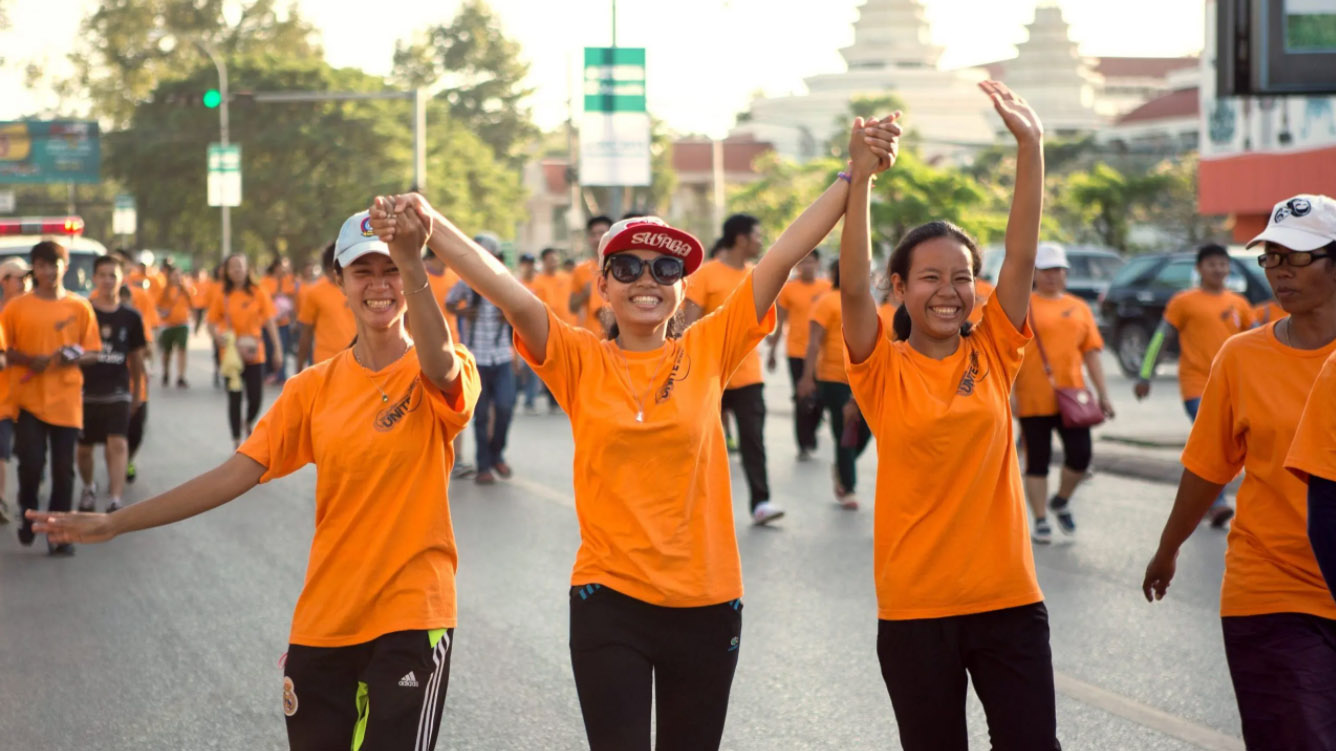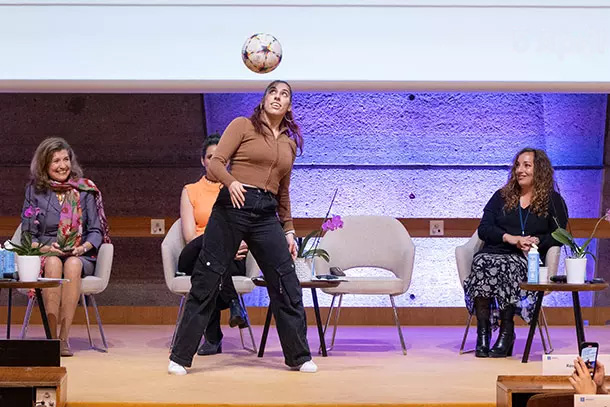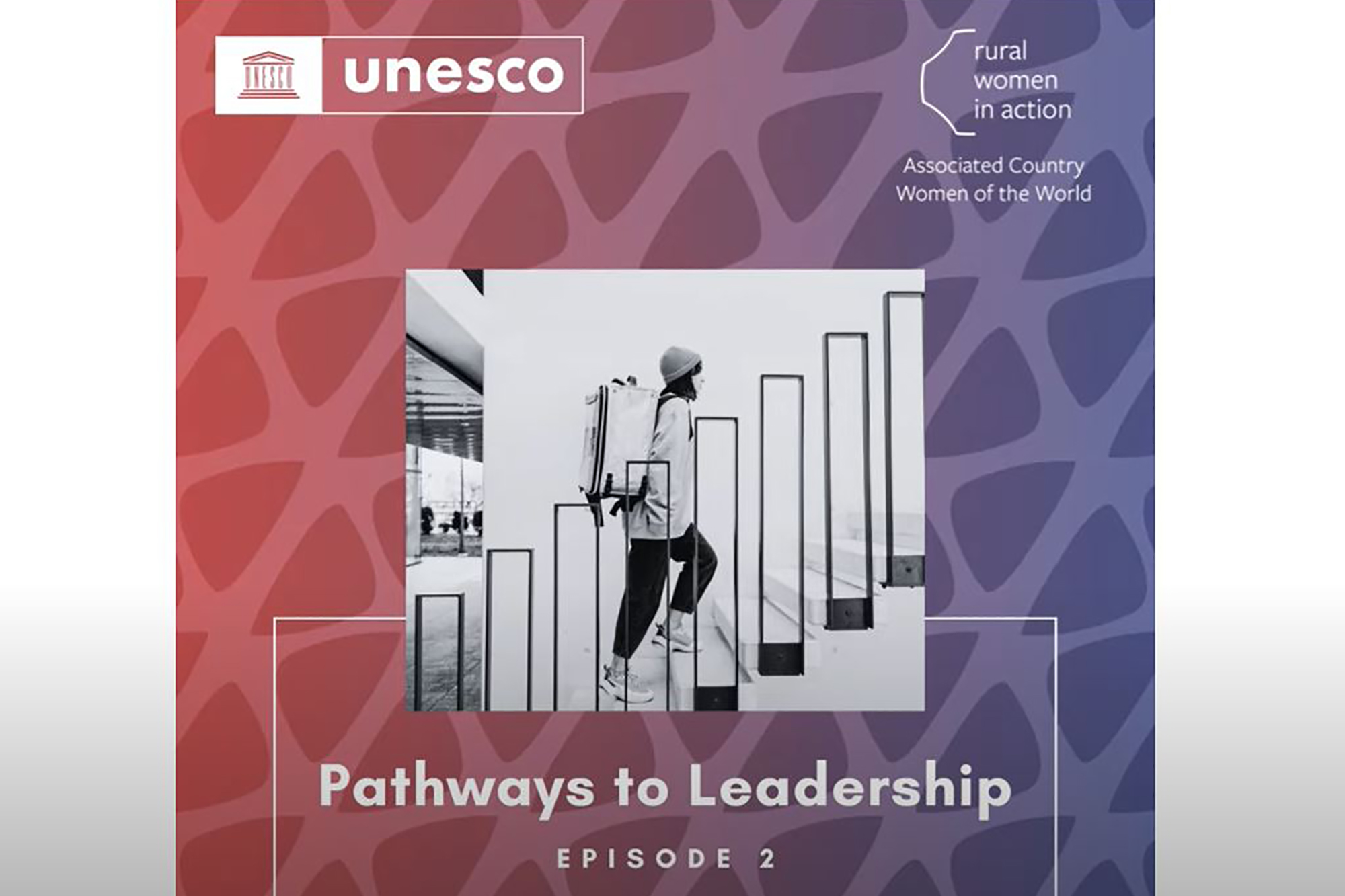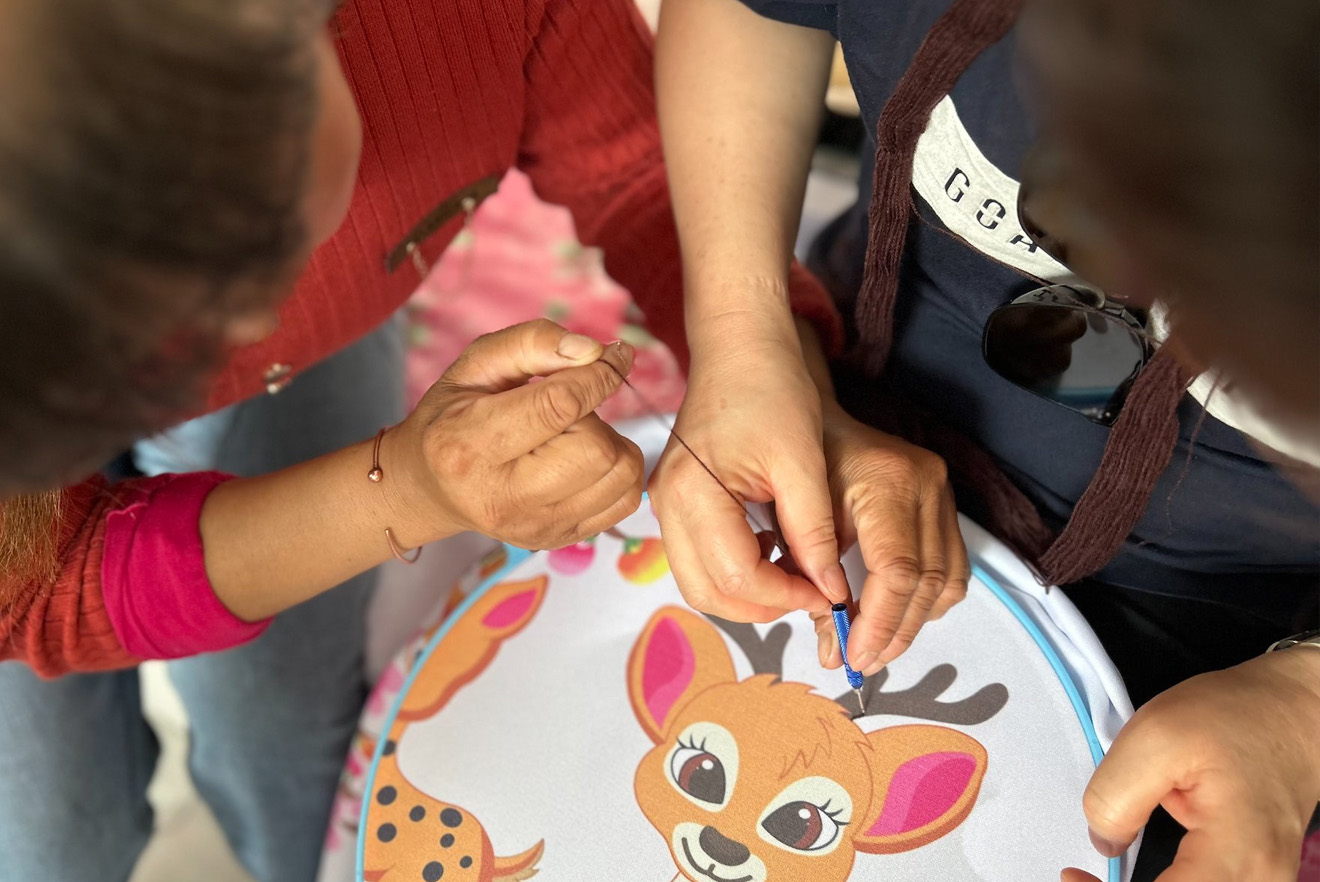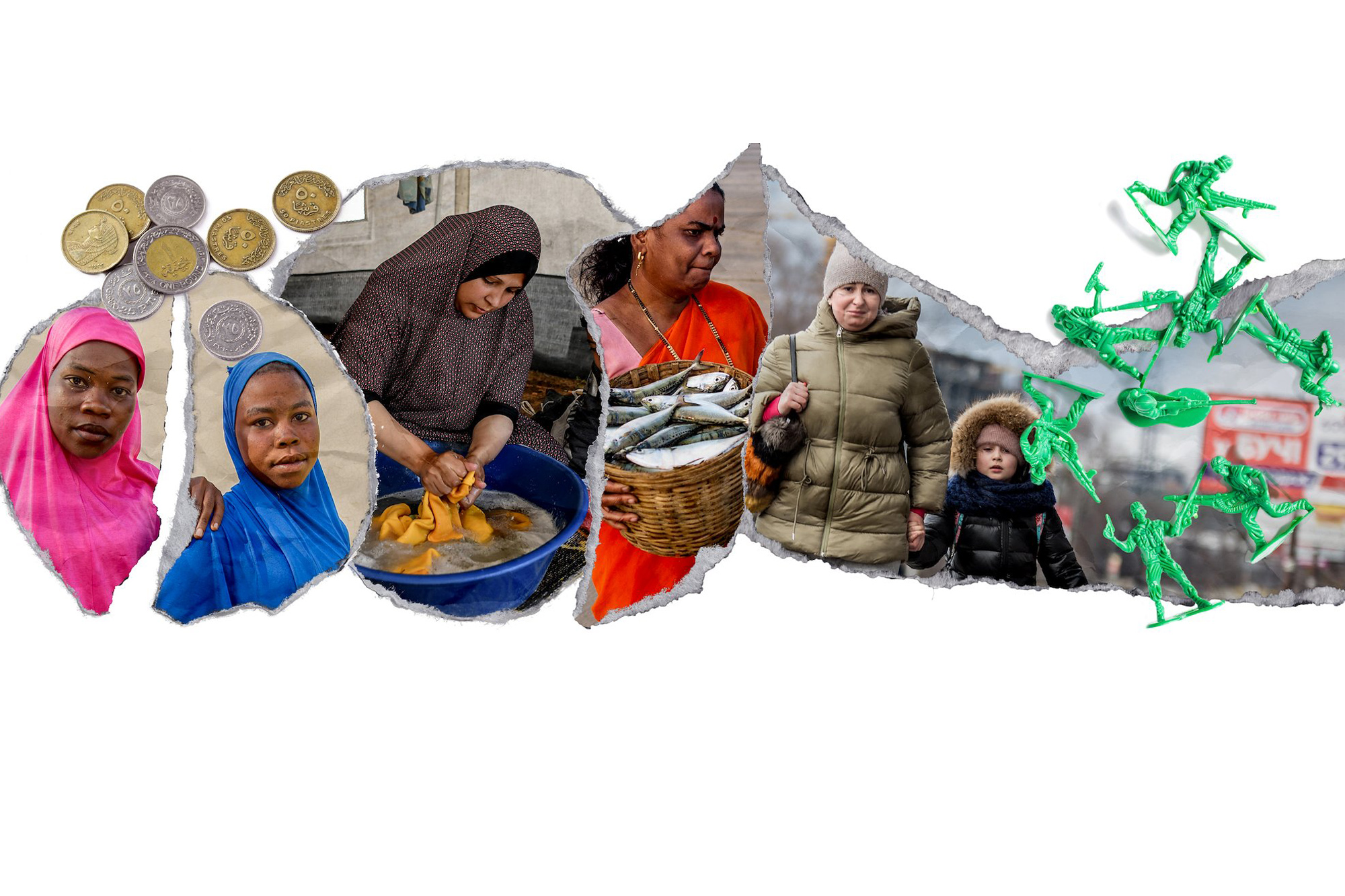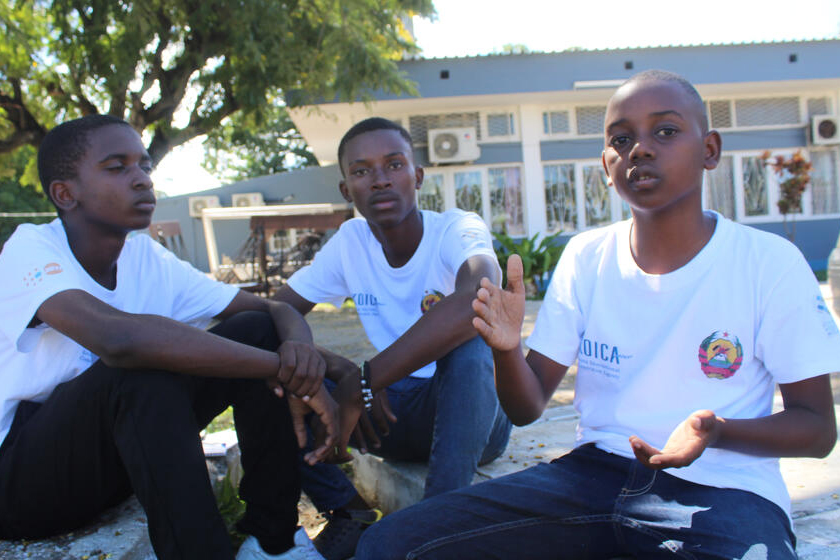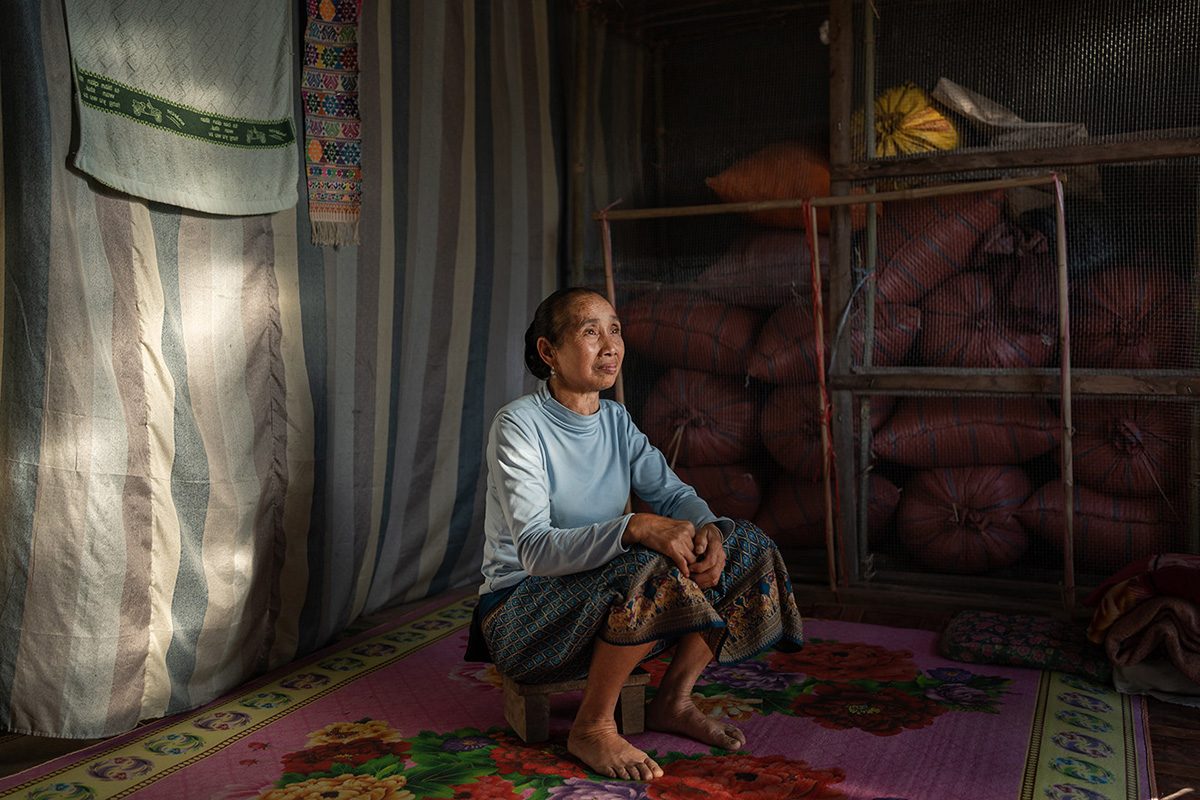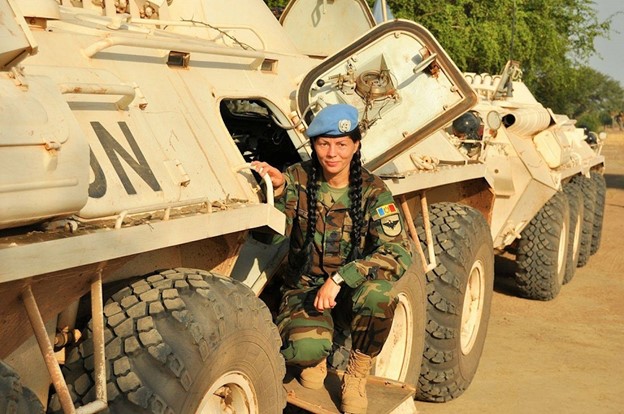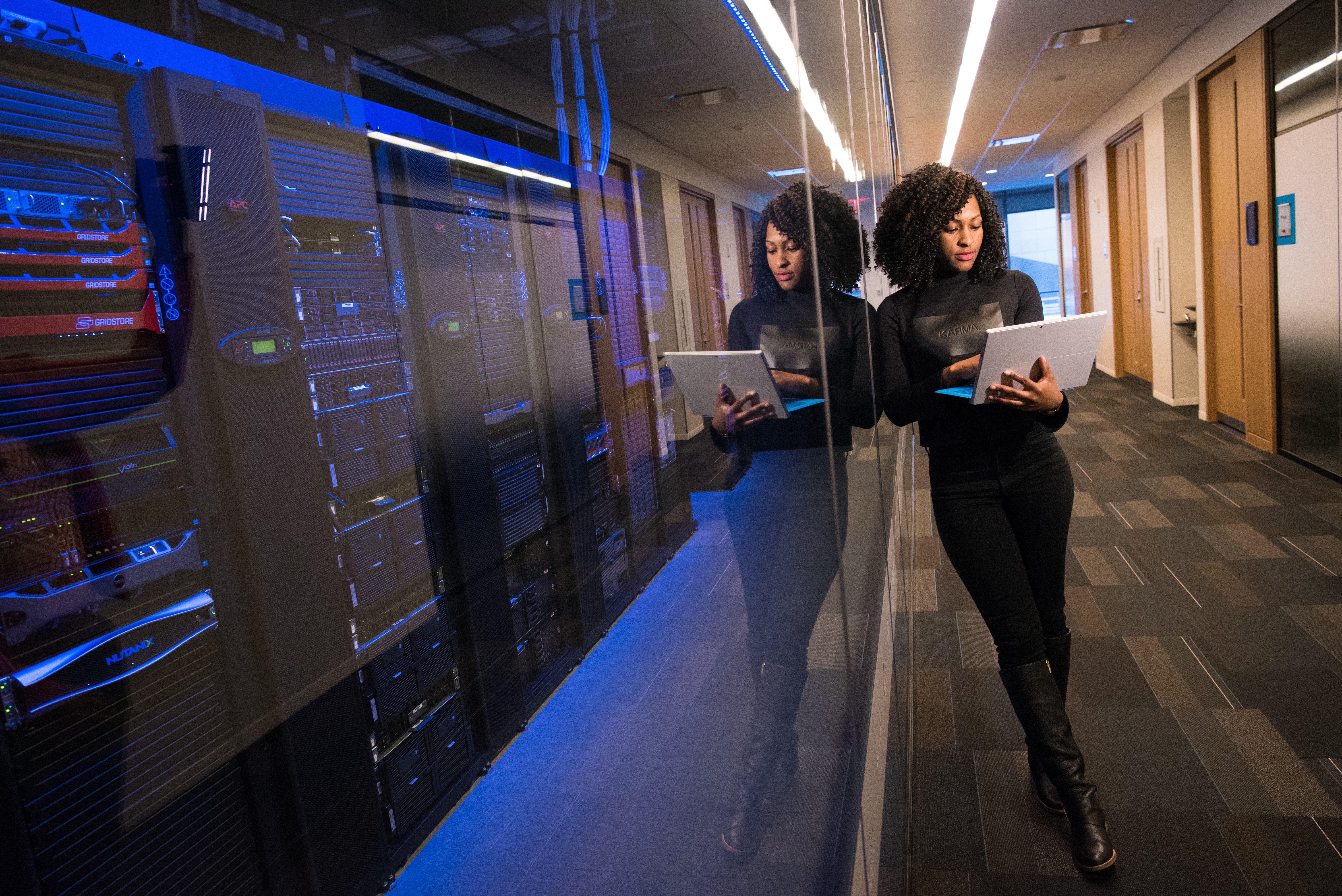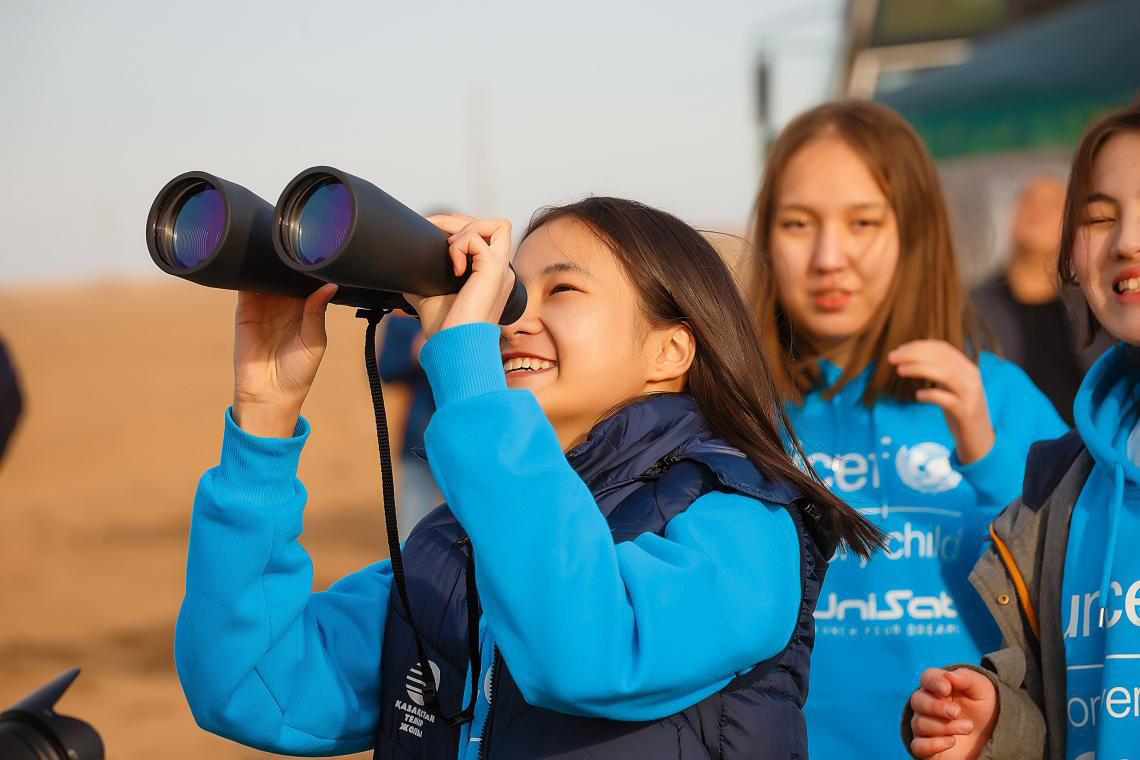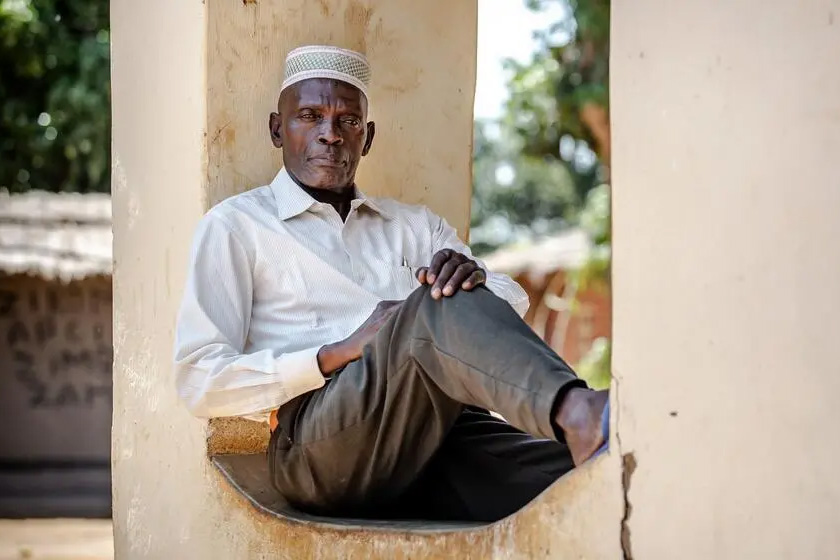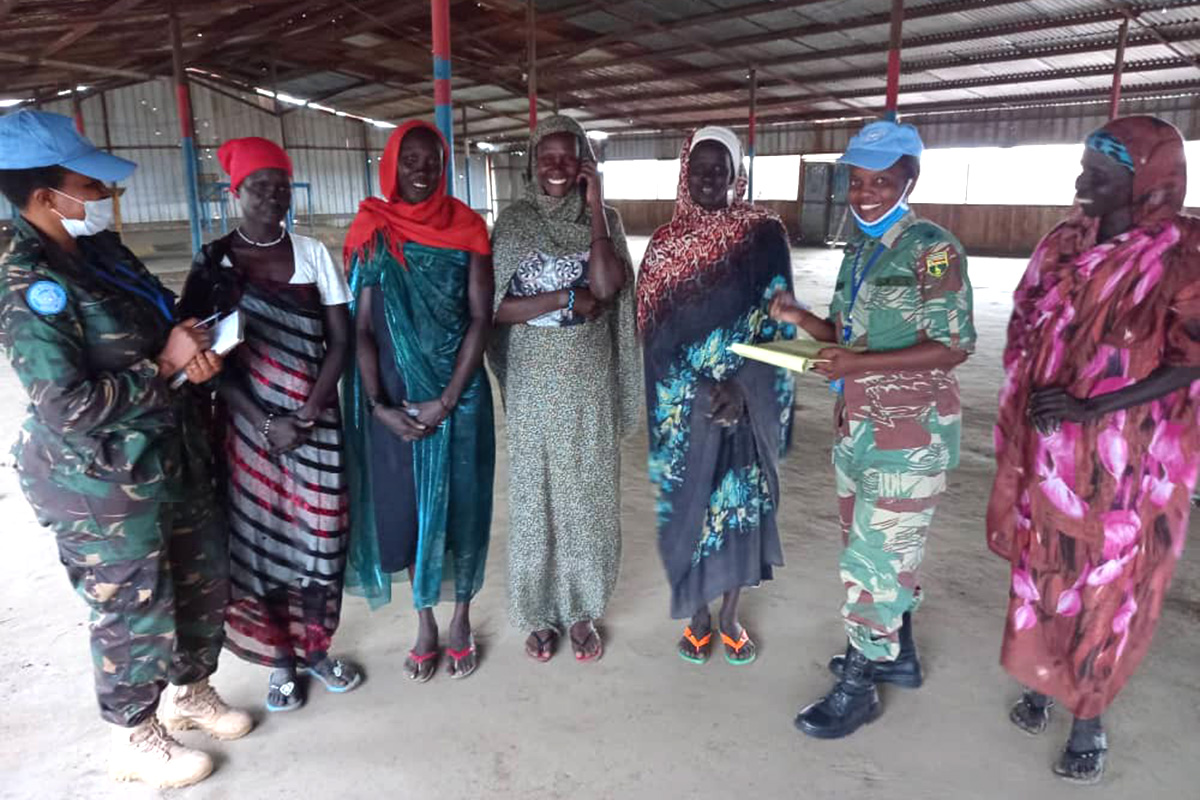Find out more in
Gender Equality
UNESCO roundtable unites leaders in sport and government to combat gender-based violence, emphasize survivor voices, advocate for data-driven policies, and promote inclusive narratives for a safer and more equitable sports culture worldwide.
Released for 2024 International Women’s Day, “Her Education, Our Future” is a documentary film following the lives of Anee, Fabiana, Mkasi and Taina – four young women across three continents who struggle to fulfill their right to education
UNESCO’s "Leadership for Equality" podcast features inspiring discussions on gender equality. Blanca Jiménez Cisneros (Ambassador of Mexico to France) talks about the role of gender equality in shaping diplomatic endeavors; Tugrug Uugan-Erdene (Director of Sain Tus Development Bridge NGO, Mongolia) discusses grassroots advocacy and intergenerational dialogue; her daughter Khongorzul Batsukh highlights the importance of youth leadership training and role models, and Judith Juma presents her documentary film on women in politics in Kenya.
Gender and age are significant factors that affect how people perceive risks, vulnerabilities, and opportunities. Life events such as marriage, childbearing, or retirement often put women and girls at a higher risk of poverty. Providing social protection, such as health insurance or cash transfers, can help reduce poverty and vulnerability, and support people from childhood to old age. In this podcast, three UNICEF officers: Ramya Subrahmanian, Nyasha Tirivayi, and Lauren Whitehead discuss Gender-Responsive and Age-Sensitive Social Protection.
Equanomics is an initiative led by the United Nations Development Programme (UNDP) that aims to make economies work for gender equality. The earnings gap between men and women is only one part of a broader gender imbalance that has many causes and serious consequences for women's well-being and overall development progress. According to the World Bank, if women earned the same as men over their lifetimes, the world could reap a significant 'gender dividend'. This is why lifting women out of poverty is critical to achieving Sustainable Development Goal (SDG) 5 on gender equality and has multiplier effects for all 17 Goals. Equanomics envisions a new path by dismantling economic structures that generate and perpetuate gender inequality, and it is helping countries take it by building expertise and supporting partners that want to transform their economies to work better for everyone.
14-year-old Cleiton Adriano, is challenging the stereotypes around masculinity and promoting women’s rights.
For many women around the world, the devastating loss of a partner is magnified by the long-term struggle for their basic rights and dignity. Even though there are more than 258 million widows around the world, historically, widows have been left unseen and unsupported. Today, as armed conflicts leave women newly widowed or with disappeared partners, the unique experiences and needs of widows must be brought to the forefront. This International Widows’ Day (23 June), let’s make their voices lead to the path to equality.
Celebrating women peacekeepers
As peacekeeping has evolved throughout the years, women have been increasingly deployed in police, military, and civilian operations. Their heightened representation continues to have a tangible impact on peacekeeping environments. This year marks the 75th anniversary of UN Peacekeeping which honors all uniformed and civilian individuals who have served and continue to serve in UN peacekeeping operations around the world for their valuable contributions to peace. UNWOMEN celebrates the contributions of women peacekeepers
Digital technology and artificial intelligence present important challenges to equality in the workplace and in society. As workplaces transition towards a digital future, we are already seeing that existing gender equality gaps are being reproduced in the digital realm.
In the first of our Future of Work podcast mini-series on artificial intelligence and the world of work - and to mark International Women’s Day, Dr. Orly Lobel explores the important role digital technologies can play in creating a brighter and more inclusive future of work, and some of the surprising ways they are already being used in workplaces today together with ILO's Anders Johnsson.
Photo: WOCinTech/Unsplash
Today, only one in three researchers is a woman. The International Day of Women and Girls in Science (11 February) is a reminder that women and girls play a critical role in science and technology communities and that their participation should be strengthened. Under the theme of “Innovate. Demonstrate. Elevate. Advance. Sustain. - Bringing Everyone Forward for Sustainable and Equitable Development”, the 8th International Day of Women and Girls in Science Assembly will focus on the role of women and girls in science as relates to the Sustainable Development Goals (SDGs). #WomenInScience
In Malawi, village head Patete, attended a training session by UNFPA focused on ending all forms of violence against women and girls and increasing awareness of human rights and gender equality.
Globally, women’s participation rate in ports is only 18%. UNCTAD’s TrainForTrade port management programme is helping to bridge the gender gap by empowering more women in ports.
Data show that restricting access to abortion does not prevent people from seeking abortion, it simply makes it more deadly. As UNFPA’s 2022 State of World Population report reveals, nearly half of all pregnancies worldwide are unintended, and over 60 per cent of these unintended pregnancies may end in abortion. A staggering 45 per cent of all abortions are unsafe, making this a leading cause of maternal death. Almost all unsafe abortions occur in developing countries, and UNFPA fears that more unsafe abortions will occur if access to abortion becomes more restricted.
Major Winnet Zharare is the first Zimbabwean to receive the prestigious UN Military Gender Advocate of the Year Award for her outstanding efforts to integrate gender perspectives into peacekeeping.

